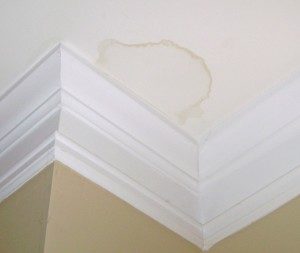Learning About Why Water Leakage Happen Frequently at Home
Learning About Why Water Leakage Happen Frequently at Home
Blog Article
Have you been trying to find selective information on Common Water Leaks In House?

Leakages not only cause waste of water but can likewise trigger unnecessary damages to your house as well as promote undesirable natural growth. By looking as well as comprehending for daily circumstances that trigger leaks, you can safeguard your home from future leakages and also unnecessary damages.
Elbowing in origins
The majority of water leakages start outside your house instead of inside it. If you discover an abrupt decline in water pressure, state in your faucet, take time to go out and also analyze your backyard. You might observe wet spots or sinkholes in your yard, and that may indicate that tree origins are getting into water lines triggering water to permeate out. You can have your plumber look for intrusion, particularly if you have trees or bushes near your home.
Corroded water systems
As time passes by, your plumbing system ages and rust such as rust may start gnawing the pipelines. This may be the root cause of discoloration or bending on your pipes. This calls for an examination with your plumber instantly. Consider replacing the pipes considering that they are at a greater risk of deterioration than the newer designs if our plumbing system is old.
Malfunctioning Pipeline Joints
Pipeline joints can degrade over time, resulting in water leakages. If you have loud pipes that make ticking or banging noises, specifically when the warm water is turned on, your pipeline joints are most likely under a great deal of stress.
Instantaneous temperature level adjustments.
Severe temperature level modifications in our pipes can create them to broaden and also acquire unexpectedly. This growth as well as contraction may cause splits in the pipelines, specifically if the temperature level are below freezing. If you kept an eye on just how your plumbing functions, it would be best. The presence of the previously pointed out conditions regularly suggests a high risk.
Poor Water Connectors
At times, a leakage can be caused by loosened tubes and pipelines that supply your devices. Most of the time, changing is what causes the loosened water Links. You might discover when it comes to a cleaning device, a pipe may spring a leak due to trembling during the spin cycle. In case of a water links leak, you may observe water running straight from the supply line or pools around your home appliances.
Blocked Drains
Clogged drains pipes could be irritating and inconveniencing, however they can occasionally end up creating an overflow bring about break pipelines. Maintain eliminating any products that might drop your drains that could block them to stay clear of such hassles.
All the above are sources of leakages but not all water leaks arise from plumbing leakages; some leaks may originate from roofing system leakages. All leaks must be fixed quickly to avoid water damage.
Leakages not just trigger waste of water yet can also create unneeded damage to your residence and advertise undesirable organic development. By recognizing as well as looking for everyday circumstances that trigger leakages, you can shield your house from future leakages and also unnecessary damages. Today, we will look at 6 leakage triggers that might be triggering your pipelines to drip.
At times, a leak can be caused by loose tubes as well as pipes that supply your appliances. In situation of a water links leak, you may observe water running directly from the supply line or puddles around your appliances.
How To Check For Water Leak In Your Home
How To Check for Leaks
The average household's leaks can account for nearly 10,000 gallons of water wasted every year and ten percent of homes have leaks that waste 90 gallons or more per day. Common types of leaks found in the home are worn toilet flappers, dripping faucets, and other leaking valves. These types of leaks are often easy to fix, requiring only a few tools and hardware that can pay for themselves in water savings. Fixing easily corrected household water leaks can save homeowners about 10 percent on their water bills.
To check for leaks in your home, you first need to determine whether you're wasting water and then identify the source of the leak. Here are some tips for finding leaks:
Take a look at your water usage during a colder month, such as January or February. If a family of four exceeds 12,000 gallons per month, there are serious leaks.
Check your water meter before and after a two-hour period when no water is being used. If the meter changes at all, you probably have a leak.
Identify toilet leaks by placing a drop of food coloring in the toilet tank. If any color shows up in the bowl after 10 minutes, you have a leak. (Be sure to flush immediately after the experiment to avoid staining the tank.)
Examine faucet gaskets and pipe fittings for any water on the outside of the pipe to check for surface leaks.
Undetected water leaks can happen without the home or business owner even realizing. If you suspect a water leak, but not able to find the source. It is time to contact a professional water leak detection service, The Leak Doctor.
How To Find a Water Leak In Your Home
https://www.leakdoctor.com/blog/How-To-Check-For-Water-Leak-In-Your-Home_AE197.html

As a person who reads on How to Find Water Leaks, I thought sharing that piece of content was really useful. Enjoyed our post? Please share it. Let other people find it. I truly appreciate reading our article about Most Common Causes of Leaky Pipes.
Fast response, call now! Report this page